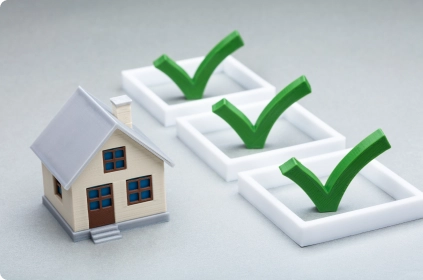Who Can Be A Guarantor?
The primary requirement for getting approval on a guarantor home loan is that the guarantor has to have a strong relationship with the buyer. This generally means immediate family.
Most banks will allow as a guarantor only:
- Your parents or your co-borrower’s mum and dad
- Your adult children
- Your spouse (this is commonly done to protect assets)
- De facto partners
The following family members can also be acceptable, as exceptions to standard policy:
- Siblings
- Grandparents
- Step-parents and legal guardians
- Children or stepchildren
- Step-siblings
The following family members are typically unacceptable but can sometimes be allowed, depending on their relationship with you:
- Uncle and aunt
- Other relatives, such as cousins
How Can An Uncle Or An Aunt Be A Guarantor?
An uncle or aunt may sometimes be approved as a guarantor on your mortgage, depending on the nature of their relationship with you. Such approvals usually result when:
- The borrower was brought up by their uncle or aunt
- The borrower has lived with his or her uncle or aunt for a prolonged period
- The uncle or aunt has an excellent credit history
- The uncle or aunt can provide a witnessed statutory declaration confirming their close relationship with you.
Please call us on 1300 889 743 or complete our free online assessment form to discover how we can help you qualify for a guarantor loan.
GET YOUR FREE
Home buyers course
Thinking of buying a home?
Learn how to buy a house and avoid costly mistakes in under 2 hours.
Learn MoreWho Cannot Be A Guarantor?
The guarantor needs to have a particularly strong relationship with you so, generally speaking, the following people are not acceptable:
- Friends, unless a term deposit is used as security
- Work colleagues
- Associates
- Former de facto partners or spouses
- Anyone else who doesn’t have an immediate relationship with you
If you want someone other than your parents to be your guarantor on your home loan, specialist lenders can help, for a premium.
What If My Preferred Guarantor Doesn't Qualify?
In some cases, your mum and dad won’t be able to act as guarantors on your mortgage because they don’t have enough equity in their property or they’re close to retirement.
Other times, parents may simply not be comfortable acting as a guarantor. But don’t worry. If you don’t have a deposit, one of these options could be for you:
- A no deposit loan
- A personal loan
- Asking your parents for a non-refundable gifted deposit(so you can avoid LMI)
- Co-signing on a home loan with your parents (this wouldn’t require them to put up their house as a security)
- Buying a property with a friend using a co-borrower or co-ownership investment loan
In these ways, you can still get into the property market sooner and you can start reaping the rewards of property ownership.

Simplify the mortgage maze with the 360° Home Loan Assessor. Get results on:
- Your maximum borrowing power
- The hidden costs of buying a home
- Interest-rate options based on your situation
Get Legal Advice From A Professional
Taking out a home loan with a guarantor is a crucial decision and comes with much responsibility. Whether you are checking to see if you can be a guarantor or want to know if someone is eligible to be a guarantor for you, we recommend that you seek advice on guarantor loan requirements from both legal and financial professionals before deciding to proceed.
Our mortgage brokers specialise in handling guarantor loans. You can call us on 1300 889 743 or complete our free online assessment form to find out how we can help you.
